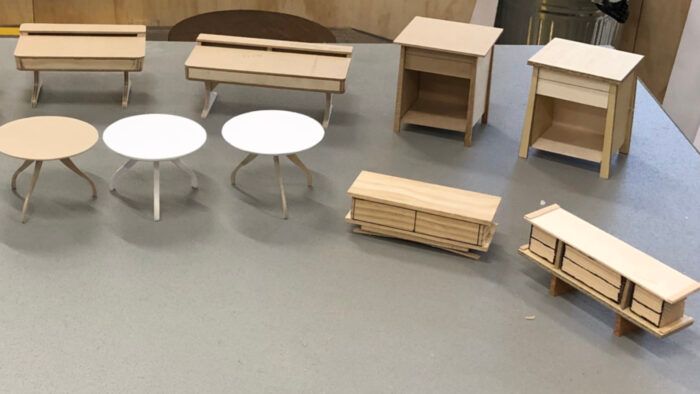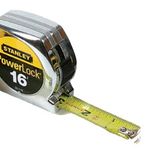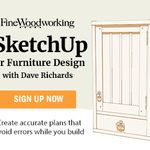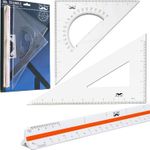3D models – old school
When the last place you want to be is in front of a computer screen, try a scale model or full-size mockup instead of CAD.
One of the techniques that many woodworkers struggle with is design. There are so many good ideas that are trapped in the mind because getting them out onto paper can be a struggle. Personally, I’m not the most talented when it comes to drawing, so after a simple sketch to get started, I quickly move on to 3D modeling.
However, my 3D modeling has nothing to do with computers. My struggle with computer design software is that I don’t design often enough to remember how to use it well. Weeks to months can go by between projects, so I end up having to relearn the program over and over again. I always seem to be in the learning phase, getting nowhere near the mastery phase. So instead, my 3D modeling uses materials and tools that I am already comfortable with. The materials I use are readily available and some of them may even be in your recycling box. Things like cardboard, paperboard, and foam are great materials to model with. I also like using foam-core panels or plastic sheets to mimic glass.
These materials can be easily cut, trimmed, and shaped using common tools like knives and scissors and glued together using hot melt glue. I often use wood and plywood scraps as well because they can so easily be shaped into curves, angles, and flat surfaces with both hand and power tools. I spend a lot of time on my bandsaw to create shapes and parts to glue together at the bench. I also keep a few colors of spray paint nearby to mimic wood colors – brown for walnut, red for cherry/mahogany, etc. Once I construct something, I take a few photos of it, then deconstruct it and tweak things. I end up with quite a few photos that I can reference and use to nail down the final design.
In many cases, I can get away with making a 1/4-scale model (called a maquette) and will scale up from there. At times, I will also make full-size models or mockups. These full-size mockups can be as simple as a cardboard construction to ascertain the height of table, or can be made from wood to help prove out joinery ideas. In the case of full-size models, you can put them into the space that they will ultimately occupy to see if you like it. A table may look perfect on a computer screen, but once built and in place it may not live up to your expectations.
When it comes to my design process, I find a mouse and keyboard to be a barrier to my personal creativity. I lean toward more analog methods like pencils and paper. I don’t do it out of some misplaced reverence for old ways, I simply find that it works best for me. Give these 3D models a try; you may be surprised at how useful they can be. Though not as fancy as CAD, they will get the job done and you get to be in the shop instead of in front of a screen.
In order to understand, you must do. – Vic
Video: Michael Fortune’s Design Process
Fine-Tune Designs Before You Build
Video: Furniture Design Step by Step with Mike Pekovich
Fine Woodworking Recommended Products

Stanley Powerlock 16-ft. tape measure

Sketchup Class

Drafting Tools




















Comments
Vic,
Great post and I agree with everything. I personally love drawing full scale and I use to compete in cad drawing speed races. Full scale drawings allows me to make mock-ups like yourself and see how they look in 1,2,&3 dimension. I often use thick foam for 3D work and I find it so useful.
Thanks for sharing.
I totally agree with Vic's assertions but for a slightly different reason. In my career as a designer I spent a lot time drawing concepts in perspective by hand and then, as computer modeling matured, in "3D" using modeling and rendering software. But the reality is that those techniques, no matter how sophisticated the software, are still only two dimensional representations of a 3D object.
They simply cannot portray a 3D object as accurately as an actual physical 3D model can.
Thank god someone wrote this
For many of my projects, I indeed do drawings and a computer sketch up plan
But I also make a scale model of the project to ‘work out the kinks’ and get a real flavour for what I was trying to build. Use thick stock paper, cardboard, foam, popsicle sticks whatever seems appropriate to work. Proportions and balance are so much easier to see on a model and adjustments made. Now I feel I have justification to continue doing just so😁
Log in or create an account to post a comment.
Sign up Log in